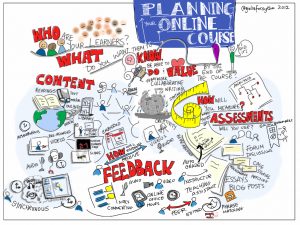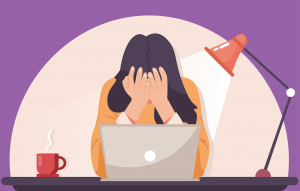It was the same day for many: adults were going to work, kids were off to school, people were looking forward to going home to relax and watch some NBA basketball. Just another normal day in March, or so everyone thought. Nobody knew that this would be the last “normal” day they would get to experience for a year and a half and counting. Soon enough, people began tuning into the news, seeing more stories of a strange new virus in China, but thinking nothing of it since it first showed up in December. Then the first known cases of it had made its way to the United States, and, just like that, before people could process what was going on, people were getting calls from work and school, the whole world started to go into a lockdown. The sounds of cars driving on streets and highways close by quieted. The school hallways were dark and empty, people began to work from home if possible. Panic and worry arose in every home, and just like that, a new “normal” had begun.
Pandemics are few and far between, but throughout history they have had great impacts on the lives of the people affected, and this virus now referred to as Covid or the Coronavirus is no different. Covid has had a big impact on the lives of everyone. Restaurants and businesses were forced to shut down publicly and move work on-line, big events were cancelled, and supply shortages began with toilet paper. One of those big transitions was moving school online, which, even now, certain school are still trying to transition back to in person and have begun to accommodate people who want to continue with these online classes. This period of time has often been referred to as Zoom University, which has made students, teachers, and parents all wonder: Just how much of an impact did this period have on the students academic success?

In a matter of weeks, students had already been transitioned to start online classes. They began to try and adjust to the new norm and ways of learning, from sitting in a video call with their teacher and fellow students, to just receiving assignments and information in an asynchronous matter, there was a plethora of different things to get used to. Throughout it all, many began to wonder: Is this really as bad as I thought it would be? Am I doing better or worse than I was when classes were in person?
This leads to the first question: was there a big difference in students’ grades from online classes in comparison to in person? OneClass surveyed over 14,000 college students about their fall 2020 experience. Students from 232 public and private universities responded. What they found was 85 percent of respondents said the pandemic had a negative effect on their performance, 9 percent said the pandemic didn’t affect their performance, and about 5 percent said the pandemic had a positive influence. 1 As school administration, students, parents, and even employers became curious, there were various research studies conducted and most came to the same conclusion: between in person and online class experiences, the latter resulted in students grades declining. When the pandemic began, the United States Military Academy at West Point professors of economics wondered the same thing, and so they decided to study the situation. Each professor had an online and an in-person portion of the class with relatively even amounts of students, and all of the course material was the same. At the end of the semester, it was found that those taking the online course had a standard deviation of -0.2 lower than that of their counterparts. 2 Why might this be? This caused by many different factors, but probably the most important reason for the difference is the lack of communication often felt in online classes. Due to the disconnect, students often asked less questions and went to professors for help less often.

As assignments continued to roll out, many students’ dashboards lit up with missing or incomplete icons, while some would wake up and see what was due for the day and be prepared to finish it by 12:00 am, not treating essays and regular homework any differently. Thanks to the end of typical campus activities there was so much time in their days. What was the point in worrying about an assignment that was due 4 days? Not being able to go out and do what they normally did, or anything at all for that matter, made many begin to feel as if they had all the time in the world to both work and also relax and watch Netflix all day long.
This “I”ll do it later” mentality, due to the difference in class format between online and in person-classes resulted in many students’ work ethics declining. This was in part due to having many classes in which assignments had a general long-term completion date, just needed to be done by the end of the semester. Students would get a certain amount of assignments for a week and it didn’t matter which order they were done in as long as it was turned in by Sunday. As has been found in the past, a study was done by Dan Arielle in which 3 groups of students were selected for a class and each one had a different due date for the same three essays. One group just had to get it done by the end of the semester, another was able to set their own due date, and the last group had theirs due in an evenly spaced time. To no surprise, the group who had the most students complete the essays was group 3, followed by group 2, and then group 1. It also said that in the case of group 2, those who evenly spaced out their due dates themselves got the assignment done on time. 3 This study helps to show just how important due dates are for goal setting, not only for students but people in general. Also, in general, 20% of adults are considered chronic procrastinators, but when entering college, that number skyrockets to 50%. 4

As many students sat around procrastinating with their assignments, watching tv, often times people would begin to check their phones. Most found only a few notifications or none at all. Sure, having a friend to FaceTime every so often was nice, and the occasional good snap conversations were fun, but being together with others in person has a huge impact on our relationships. Students and people in general slowly began to realize just how important in person interactions were to their overall happiness and health.
One of the biggest factors impacting students’ success is a students’ health, although people underestimate just how big of a role it plays in academics. With almost any situation in life, people do better whenever they are healthy mentally and physically. Some of the results of mental health struggles for students includes: inability to focus and complete challenging tasks, missed days of school due to illness or school avoidance, course credit deficiencies over time, and lower end-of-course grades.5 Although mental health challenges obviously cannot be avoided at times, if detected early, can lead to improved academic achievement and reduced disruptions at school. 6 The biggest obstacle the pandemic brought for many was not getting an adequate amount of social interactions with friends, teachers, and family members. While there were things such as FaceTime and other messaging apps to help, others still lacked the social relationship interactions they needed, and as a result, their mental health declined. For some people, who lived alone or did not have many friends, school and work were where they got this quality face to face interaction time.
Although online school has positive aspects, oftentimes with many situations, the good is overshadowed by the bad and prevents issues from being noticed and solved. With schools beginning to switch back to fully in-person classes, it will be important for teachers and parents alike to understand the struggles that developed with online school for many students and give them a chance to readjust before questioning why they might be struggling academically. It is important for those teachers and students continuing classes online, that they understand some of the critical difficulties online presents and to find solutions to make a great experience for both teacher and student. It will also be important for students to figure out the best way to transition back to in person classes and to get back on track with their academics.
One of the most crucial things to maintain good grades is discipline. If you are finding yourself struggling to meet deadlines, find a schedule that works for you and gives you time for the important things in your life, and find spots of time that you can designate focus for studying, work, or anything that you need to get done. It’s also just as important for students to get used to making conversation and friends once again, especially for those who might be at a new school than at the start of the pandemic. Making friends is probably a skill that many of us took for granted. A good place to start if you’re a college student is to make friends with your roommate, suite-mate, resident assistant or classmates. Find subjects that are common ground to talk about. You may have to be the one to initiate the conversation. Once you meet a few people, and participate in activities together you’ll be able to start meeting more people through those people and will find people that are easy to talk to. It can be helpful to look for and join campus organizations that interest you. Remember, you’re not alone in feeling out of communication practice. Most importantly, don’t stress over this, nothing forced is ever good, so just relax and enjoy the ride as you transition back to school and life.
- Amour, Madeline St. “Survey: Pandemic Negatively Affected Grades This Fall.” 1150 Conneticut Avenue NW Suite 400, Washington DC, 5 Jan. 2021. ↵
- Cellini, Stephanie Riengg. “How Does Virtual Learning Impact Students in Higher Education?” Brookings.edu, Brown Center Chalkboard, 13 Aug. 2021, https://www.brookings.edu/blog/brown-center-chalkboard/2021/08/13/how-does-virtual-learning-impact-students-in-higher-education/. ↵
- “Improve Your Productivity With the Power of Deadlines.” Art of Manliness, created by Brett McKay, Spotify, 2 Aug. 2021. ↵
- “Improve Your Productivity With the Power of Deadlines.” Art of Manliness, created by Brett McKay, Spotify, 2 Aug. 2021. ↵
- NITT-TA. “Mental Health and Academic Achievement.” Education.nh.gov, SAMHSA, https://www.education.nh.gov/sites/g/files/ehbemt326/files/inline-documents/mental_health_and_academic_achievement.pdf. ↵
- NITT-TA. “Mental Health and Academic Achievement.” Education.nh.gov, SAMHSA, https://www.education.nh.gov/sites/g/files/ehbemt326/files/inline-documents/mental_health_and_academic_achievement.pdf. ↵




31 comments
Dhwani Chandi
The beginning of this article is very gripping and the way of telling the story through a pandemic is interesting. As a student myself I know how tough it was for us students to focus on classes through zoom, Being in class makes it different as we are in the movement, and when taking classes from zoom it was hard and my grades started declining too.
I could relate very well from the lines at the end of the fourth paragraph “the most important reason for the difference is the lack of communication often felt in online classes” even I started getting this I’ll do it later mentality. This article was so interesting to me that now I want to research more about how our lives have changed through covid times and write my research article on it!
Victorianna Mejia
This article may not have been specific about it but it did touch on mental health during this pandemic and I very much appreciate it. The need to be around people to help our social bar is actually very important. The pandemic has caused so many issues for everyone but I feel for those in school. Not only are they dealing with something scary (Covid-19) they may be dealing with loss, financial issues and then they have to worry about their schooling. I loved this article and the empathy that was written for those who need it.
Paula Ferradas Hiraoka
To start, great article! The ongoing pandemic impacted hugely in students’ lives. As part of the class of 2020 we had mixed emotions and all the stress for trying to be “responsible” affected us in many ways. I also like at the beginning, how you explained in a general context how everyone and everything was going. In general, amazing article and amazing explanation.
Margaret Maguire
The pandemic impacted schools and learning in so many different ways and this article did an amazing job of listing out how the virus impacted learning. I really liked the studies that were presented in this article. Up until reading this article, I had no idea that there had been multiple studies done over student happiness and student success. The author mentioned that one of the most important reasons for the decline in student success is the decline in asking questions. I thought that was a really interesting point the author made.
Kanum Parker
Covid rocked everyones world and changed everything for everyone. Everyone had a different experience but most have had a bad one. Humans are social creatures and taking that away can affect ones health significantly. Also many people got lazy or got an attitude of I can do that later or even finish this class in 1 week mindset. Covid changed a lot and caused mental heath to go down as you see know everyone speaks about it and admits it’s important. As the world is now slowly getting back up from this hit we need to improve from what we learned in this experience. What we learned about ourselves.
Charles Lares
The switch from in person classes to the online setting impacted many people. By being in the online setting, this would cause many mental issues in people while being in their home 24/7. Procrastination is a thing that many students do but when it’s online, will students want to complete the work since they’re distracted at home? The article did an excellent job explaining the impact of of grades very well but also on the topic of mental health. Mental health was affected so much in people since they couldn’t leave their homes so how could they deal with this properly? It’s unbelievable that two years has already passed and still we are trying to get things under control.
Kelly Arevalo
I think you sum up what most of us lived and felt during this rare time in a particularly engaging way. I felt personally identified with what you mentioned about the discipline, or, better to say, the lack of it. It is true that without any interaction or constant reminders, it was harder to keep a study routine. Although I must say, sometimes, it also was like a burden you didn’t have to carry anymore.
McKayla C. Rodriguez
I found your article to be really interesting and intriguing! The pandemic impacted people from all over the world, and it forced many people to adjust to new norms such as communicating and working through Zoom. Time management was and still is important. We’re at a point where we are slowly getting back to normal, with students and people in general going back to their workplaces in-person, and Zoom is still something we are using. It still continues to stay active and essential for some who choose to utilize it.
Alonso Rodriguez
Great way to show that despite trying to establish zoom as a platform that would make online classes similar to regular classes, it has brought with it different protocols and communicative codes. In the beginning, we were all trying to figure out how to use it correctly. Your article is very interesting, I congratulate you for it. Are you more into turning your camera on or off when you are in class via zoom? I am curious.
Isaac Fellows
Thank you for the article. It’s especially meaningful to me, and I’m sure so many others, because it puts into perspective of just how much I wasn’t alone in my own struggles. I enjoyed the opening especially because, although I’ve seen this story recounted the same way hundreds of times, it never gets old. It really did just feel like a longer Spring Break!
Great article, and very informative.